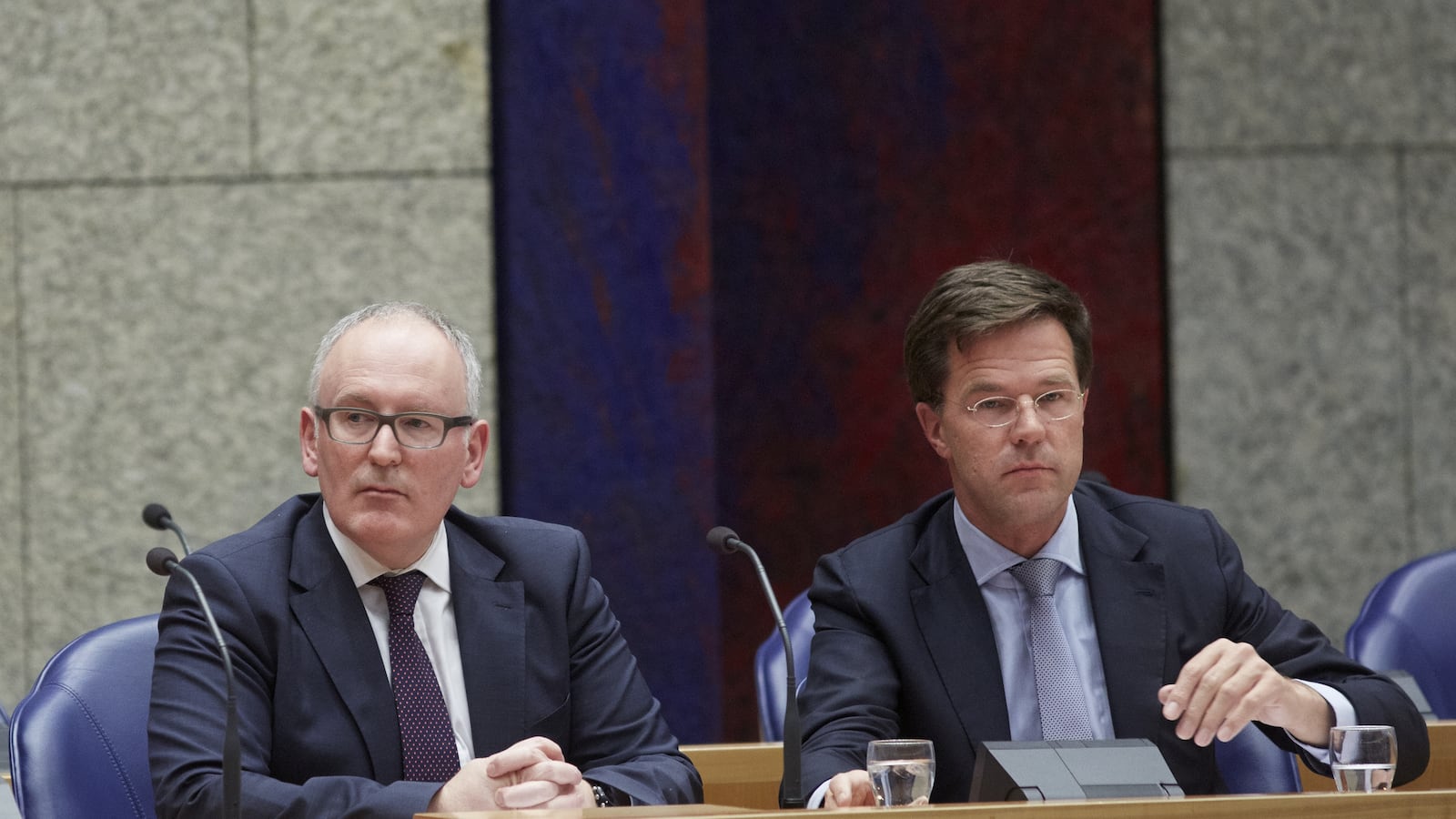The Dutch Advisory Council on International Affairs (AIV), an advisory body to the Dutch government and Parliament, published "Between Words and Deeds: Prospects for a Sustainable Peace in the Middle East" in April. The report's analysis and policy recommendations were truly surprising, running counter to more than 40 years of uncritical pro-Israel policies of successive Dutch governments. Yet the international press did not make much of it. Now that the text has been translated and made available in English and French on the Council's website, the important shift it represents should become more widely known.

The report was written at the request of the President of the Senate, a member of the traditional pro-Israel conservative party VVD. The initiative was supported by the full Senate except for Geert Wilders' staunchly pro-Israel PVV. The Senate letter seems to signal a readiness for more active Dutch and EU involvement in solving the conflict, and a willingness to apply international law, including the Opinion of the International Court of Justice from 2004.
The report explains the urgency for ending the conflict, which is fueled by the continuing expansion of Israeli settlements, and the unstable situation in the region resulting from the Arab Spring. By Dutch standards, it contains remarkably critical and trend-breaking ideas. This is all the more surprising since the AIV is a highly respected official body and two of the six authors are former ambassadors and another one is a very senior member of the VVD.
The authors recall the "historical ties and solidarity" with Israel, but stress at the same time that these "must not preclude calling it to account for violating the law."
They recognize that the U.S. remains in the best position to effectively influence relations between Israel and the Palestinians. Uncertainty over the commitment of the U.S., however, makes it extra important to look at a possible role for the EU. The possibilities for the EU to breathe new life into the peace process are potentially more significant than often assumed (EU's intensive relations with Israel in many policy areas; Palestinian financial dependence on the EU). In case adequate U.S. efforts do not come forth, "or if they go into the wrong direction because unreasonable Israeli positions will be disregarded too much," the EU should not be afraid to take responsibility. In so doing, it should pay adequate attention to generally accepted principles of international law.
For a wide legitimization of international peace proposals it is essential to also involve countries from the Arab region, such as Egypt and Jordan, or Qatar.
The report calls on the Palestinians to recognize that Israeli security concerns are legitimate and to take steps to allay these. A reconciliation between Fatah and Hamas is highly desirable. "Contacts with Hamas should not be avoided." Israel must "radically" change its settlement policy in the short run. In case it does not stop the continuing violations of international law and binding resolutions of the U.N. Security Council, the international community should draw clear consequences. For the EU this could mean a reduction or freezing of relations (in any case no upgrade of relations) and the interdiction of imports from Israeli settlements.
The report ends with suggestions for initiatives the Netherlands can take on its own, mostly within the framework of the EU.
The Dutch political establishment certainly had not expected a report of this kind. Pro-Israel politicians were quick to point out that they were "unpleasantly surprised" by this "trend-break."
The Dutch public should have less difficulty with the AIV's recommendations. Since 2005, polls have shown that the average Dutchman holds surprisingly mature views on the conflict and on the steps the Dutch government and the EU should take to end the occupation. According to the 2010 poll, 58 percent feel that the Dutch government should pressure Israel to dismantle the settlements, 54 percent feel that the occupation must end, 56 percent feel that Israel must take down the separation barrier on Palestinian territory and 57 percent feel that Hamas should probably be involved in the peace process.
Minister of Foreign Affairs Frans Timmermans must present a formal reaction by mid-July. That will be a difficult balancing act, because his social-democratic party PvdA is in a coalition government with the VVD. Thus far, the Minister's approach to the Israeli-Palestinian conflict has disappointed the social-democrats, who feel that he has given in too much to his coalition partner.
Despite public opinion, the current balance of power in Parliament would not allow a quick implementation of many recommendations. The report can be expected, however, to contribute to making the public debate on the conflict less emotional and more-fact based. It should also help political parties and NGOs that do want change to make their case more strongly. In view of official Dutch policy so far, that would already be quite an achievement.






